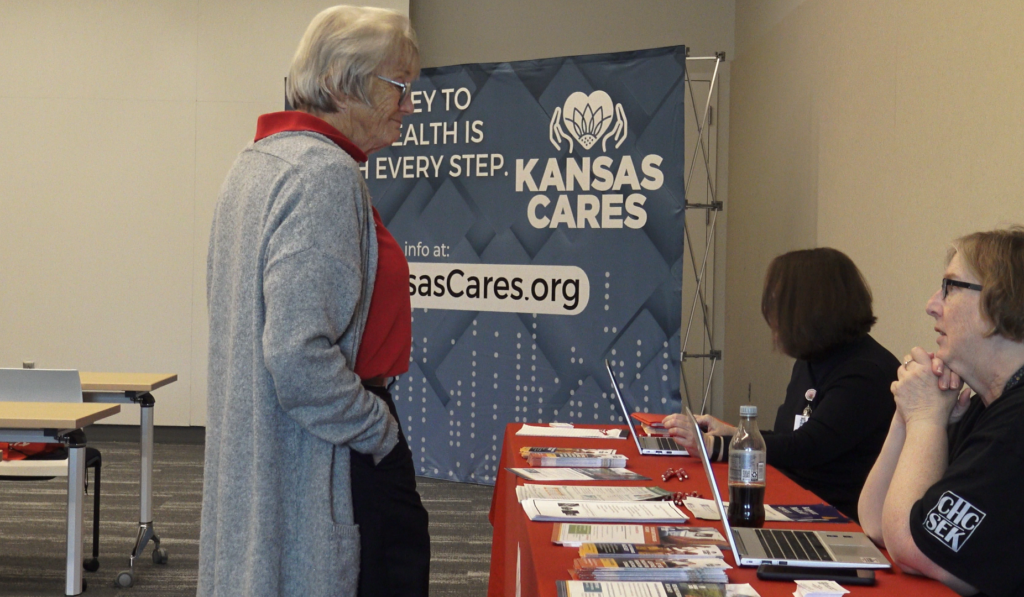
This is the second part in a two-part series.
Late last year, we traveled to rural communities in every corner of Kansas to have conversations about the future of rural health. The robust conversations covered a lot of ground, but five topics — expanding Medicaid, financial vulnerability of rural health care providers, child care, health care workforce, and mental health — were top of mind for rural Kansans at each meeting.
Last month, we highlighted concerns related to the financial vulnerability of health care providers and how Medicaid expansion will help ensure hardworking residents are able to access care, improving their health and rural hospitals’ bottom lines.
During these conversations it was clear the issues of child care, mental health and workforce are critically important.
Access to mental health care
Our discussions affirmed that unmet mental health needs are a top concern, with Kansans across the state facing challenges addressing mental health issues. In fact, according to Mental Health America’s 2023 report “The state of Mental Health in America,” Kansas ranks last in the nation — driven by the prevalence of youth with substance use disorders in the past year, adults with any mental illness and adults with serious thoughts of suicide.
Data from Kansas Communities that Care Surveys shows there’s been an increase in recent years in the percentage of students and young adults experiencing hopelessness and sadness that led to ending participation in activities, a key indicator of mental health concerns.
While mental health challenges are statewide, national research highlights that it is much tougher to get care in rural communities.
At the meetings, there was hope the recent actions by the governor and Legislature to establish Certified Community Behavioral Health Centers would help ensure increased ability to provide and sustain behavioral health services in rural areas of our state.
Others highlighted that expanding Medicaid would improve access to mental health; one-third of the uninsured Kansans in the coverage gap have experienced mental health or substance use challenges in the past year. Expanding Medicaid would help them get coverage, increasing access to treatment.
There is a lot of interest in addressing youth mental health needs through expanding existing school-based pilots and enhancing services in schools.
Child care
Attendees at each meeting sounded the alarm about the state’s child care crisis. Child care is unaffordable and unavailable for parents across the state.
Child care costs are out of reach for too many Kansas families. According to the Economic Policy Institute, the average annual cost of infant care in Kansas is $11,222 per child, which represents 18.1% of the median family income in Kansas.
Beyond being unaffordable, child care is simply unavailable in many Kansas communities. According to Child Care Aware of Kansas, just 49% of rural communities have the child care slots needed to meet demand.
Access to high-quality child care is necessary for Kansas children and our economy to be able to thrive, which is why it was exciting to see Gov. Laura Kelly propose record investments into the early childhood system. It is critically important for working parents of young children to be able to find quality affordable child care because it aids healthy child development and allows them to return to the workforce.
It is clear rural Kansans know that the ability of Kansas children and rural communities to thrive depends on investments in safe, quality childcare. We will continue to work with partners across the state to achieve that goal.
Workforce
The ability of hospitals and clinics to attract and retain workers was a top concern. We know that the pandemic forced workers out of the health care sector, and workforce challenges are driving up the cost of care and resulting in delays in care. In both the short term and as we consider future demographic and health care delivery changes, we need to think innovatively about how we build a sustainable workforce.
Recently, the Health Fund and Kansas Health Institute released research on how expanding the care team can improve healthcare in Kansas. Leveraging teams that include providers like community health workers, doulas, peer supporters and community paramedics can improve access to care and increase the capacity of the teams.
Innovative approaches pairing longstanding investments in loan repayment programs and residency programs that train and keep Kansas providers in the state are also good starting points.
While other issues — transportation, food insecurity, language access — and solutions were discussed, it was clear that rural Kansans are deeply committed to working together in building and sustaining their communities. We look forward to continuing to partner with them.
Lisse Regehr is president and CEO of Thrive Kansas. David Jordan is the president of the Hutchinson-based United Methodist Health Ministry Fund. Through its opinion section, the Kansas Reflector works to amplify the voices of people who are affected by public policies or excluded from public debate. Find information, including how to submit your own commentary, here.
